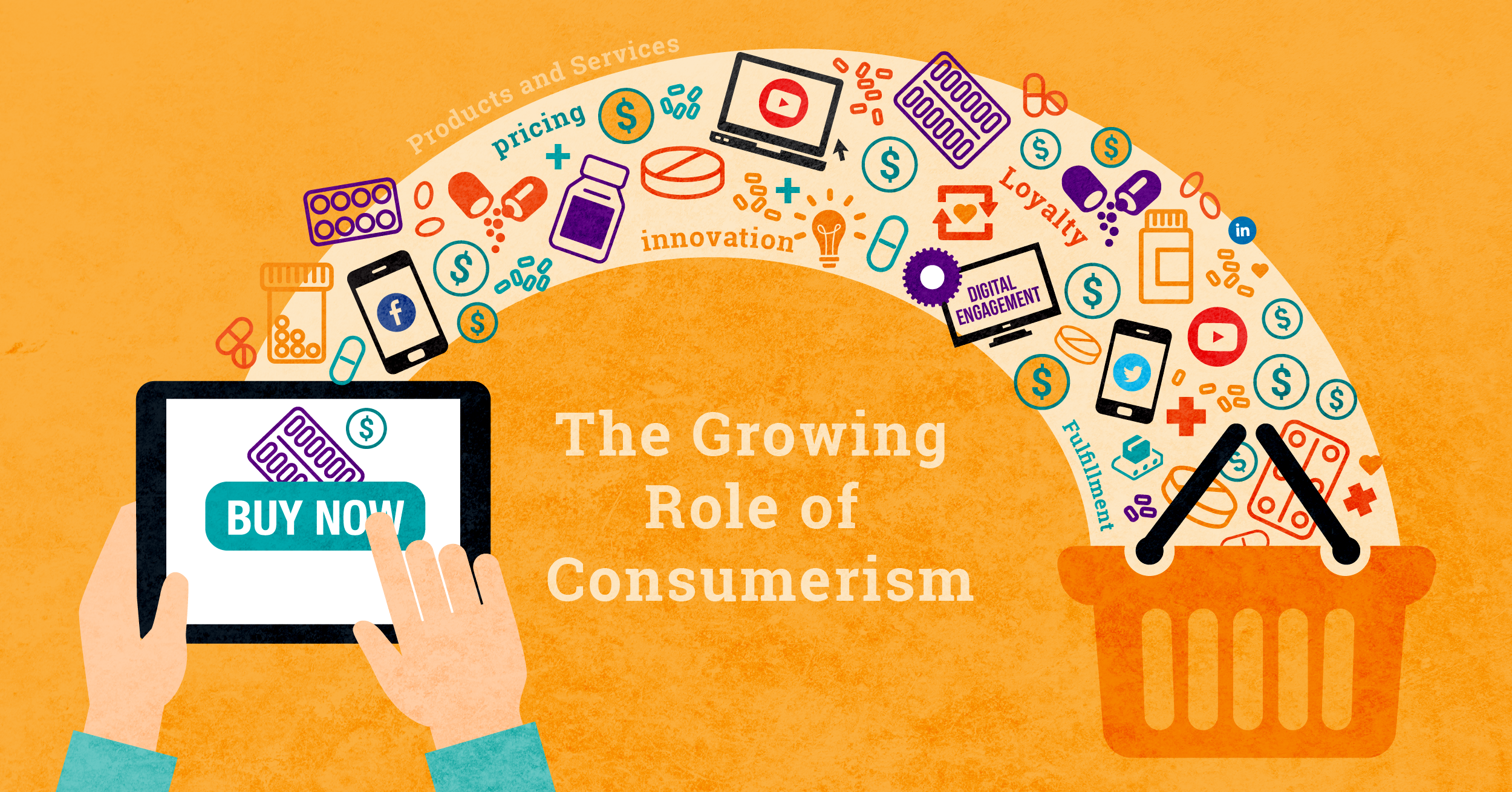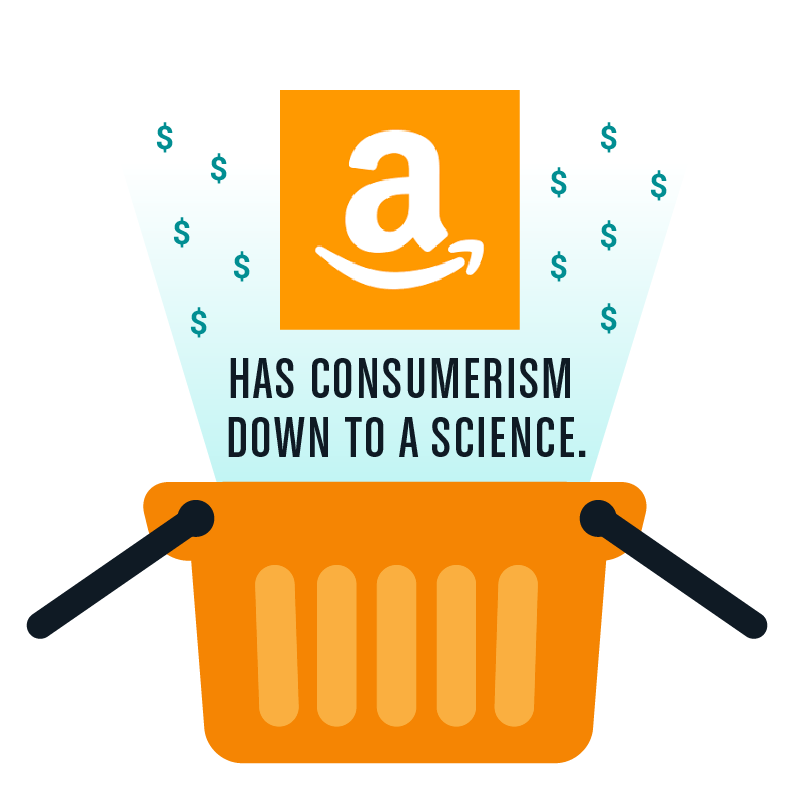Specialty Pharmacy Trends: The Growing Role of Consumerism
Since the birth of the specialty pharmacy industry, patients have largely been defined by sets of drugs. However, specialty pharmacy trends reveal that patients are demanding much more than a care plan based on a drug or therapeutic condition. With the shift from volume-based toward value-based care, people are transitioning from patients to healthcare consumers — taking more responsibility for their health and having a more involved role in their care plans.
The specialty pharmacy industry is becoming more commoditized with each passing day. Specialty pharmacies that want to win must evolve to meet patients’ needs and expectations and view their patients as sophisticated consumers.
With this increasing commoditization and patient power, the industry should always remember that patients are consumers too. Just like any industry, the specialty pharmacy industry’s growth and success rely on consumer attitudes and buying behaviors.
And just like any industry, specialty pharmacy is ripe for disruption — the same kind of transactional, impersonal disruption that allows a stay-at-home mom to push an Amazon Dash button to re-order cough syrup or vitamins from her smartphone or tablet instead of going to the store.
Consumerism is a Blessing and a Curse
Consumerism is a blessing and curse to specialty pharmacy. On one hand, specialty pharmacy commoditization validates the increased utilization of specialty therapies and helps standardize treatments. On the other hand, consumerism opens the door for more competition to distribute therapies with evolving levels of cost, speed, and convenience.
So how can pharmacies keep up with the turning tides?
By tapping into and embracing the key drivers of consumerism whenever the opportunity arises. The opportunity is now.
The Six Themes of Consumerism
According to Albert Thigpen of Diplomat Pharmacy, there are six key themes that shape the way today’s consumers make their purchase decisions: pricing, loyalty, fulfillment, products and services, digital engagement, and innovation. To understand the future of specialty pharmacy trends and relationships, it’s critical to understand how these motivators affect consumerism on all sides of the table.
Pricing
While specialty pharmacy patients may not have a direct say in pricing, today’s consumer is extremely cost-conscious. When it comes to pharmaceuticals, there are a lot of factors at play to determine the bottom line for patients, as well as the manufacturers, payers, and providers that are caring for them. Issues like reimbursement pressures, copay differentials, copay assistance programs, generics, and drug mixes all play into the customer’s experience and costs.
Loyalty
While some consumers have fierce loyalty to brands, this loyalty is beginning to take a back seat to issues like price, convenience, and the speed at which they can get what they’re looking for. Every market imaginable is bursting at the seams with top-quality options — it often just comes down to who can get the job done faster.
Fulfillment
How quickly can a consumer purchase and receive what they’re after? On-demand fulfillment strategies are winning out against more time-consuming processes, as consumers are getting more used to the instant gratification nature of the digital era. Think back to the Amazon Dash button. Consumers can push a button to get whatever they want, whenever they want it — wherever they are.
Products and Services
Vertically-integrated corporations are taking larger slices of the pie, and this is beginning to appear in the specialty pharmacy market with big payer-PBM mergers like Aetna and CVS/Caremark. Vertical integration allows for better access and more diverse portfolios of wrap-around services, which ultimately lead to more streamlined customer experiences.
Digital Engagement
In 2000, 52% of American adults used the internet. Today, that number has skyrocketed to 89%. With so many of us online, doing so many different things, there’s a wealth of data that companies — including specialty pharmacies and other healthcare companies — can collect on patients that can be used to tailor experiences to their interests and preferences.
These experiences are no longer just a treat in the eyes of consumers; they’re more like requirements.
Innovation
Technology is entwined into every aspect of life. Simply put: companies that fail to innovate and capitalize on data and tech will be left in the dust. Consumers are experiencing greater personalization, more accurate and enticing product recommendations, and more convenient ways to cross off their to-do lists.
How Amazon Is a Shining Model for Specialty Pharmacy Trends
In late 2017, when rumors surfaced that Amazon might be entering the specialty pharmacy industry, analysts and shareholders went wild with speculation on how massively it might disrupt the status quo.
With good reason.
From the Dash buttons mentioned earlier, to their incredible fulfillment costs of just a few dollars on average, to personalized product recommendations based on a user’s past behavior, Amazon has consumerism down to a science.
When you log into your Amazon account, you can access more than a dozen features and tools without even bothering to log in separately. You can click a single button to order products, or you can use a Dash button in your home to order without even turning on your computer or touching your smartphone.
While it’s still uncertain whether Amazon will penetrate the specialty pharmacy space, experts theorize that its entrance may take the form of strategic partnerships with companies like Express Scripts. Others believe it may occur as retail and specialty pharmacy acquisitions, like Amazon’s purchase of Whole Foods in August 2017.
Marketing for Consumerism: The Importance of Specialty Pharmacy Consulting Expertise
It’s a complex, constantly changing, and multi-faceted process to navigate specialty pharmacy trends while incorporating the evolving role of consumerism. For healthcare brands to come out on top, it will require careful internal and market evaluation, as well as strategic efforts to harmonize and coordinate operations, clinical and legislative guidelines, industry relationships, and business models.
That’s why brands need an expert when it comes to specialty pharmacy overcoming commoditization and communicating to drug manufacturers, payers, and providers why your specialty pharmacy is leading the way in meeting the needs of tomorrow’s specialty pharmacy consumer.
Legacy DNA has worked in the specialty pharmacy industry since there were only about 100 specialty pharmacies in the nation. Fast forward to today, and there are more than 700 accredited pharmacies — and many, many more that are unaccredited. We’ve watched the industry grow and evolve, giving us a targeted lens to develop consumer-oriented business strategies for pharmacies.
If you’re looking for healthcare marketing and specialty pharmacy consulting services to keep your company on the forefront of specialty pharmacy trends, contact us today for your free 30-minute analysis of your differentiation strategy or download our free white paper: 8 Strategies to Differentiate your Specialty Pharmacy!



